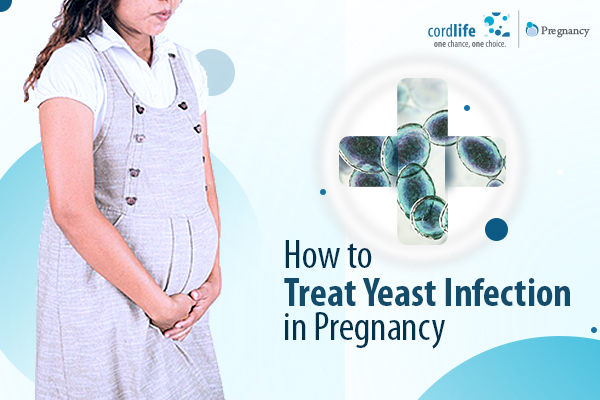Table of Contents
During pregnancy, you are more prone to infections. This is because several changes are happening within your body, especially at a hormonal level. These hormonal changes cause an imbalance of bacteria and yeast in the vagina, leading to an overgrowth of yeast. This condition is known as a yeast infection or candidiasis.
Yeast is nothing but a normal fungus. When the estrogen levels in the body rise, they create a conducive environment for the yeast to grow. Most yeast infections are caused by a type of yeast known as Candida albicans. However, two other types of yeast can also cause an infection: candida glabrata and candida tropicalis. Apart from pregnant women, this infection is common in women taking birth control pills, antibiotics, corticosteroids, etc. It can also be seen in women with diabetes and disorders of the immune system. A partner can also transmit a yeast infection during vaginal sex. Another factor that can intensify this infection is excessive moisture in the vaginal area. It creates the perfect atmosphere for the yeast to grow and multiply.
Most adult women experience this condition at least once in their lives. In pregnant women, it is more common during the second trimester. There is no reason to panic as yeast infections pose no risk to your pregnancy or the baby.
Symptoms of Yeast Infection
- Increase in the vaginal discharge volume
- Itching and burning sensation in the vulva region
- White and lumpy discharge
- Redness and swelling in the area around the vagina
- Odourless discharge
Ways to Prevent Yeast Infections
- Wear breathable cotton underwear with full coverage
- Keep your vaginal area dry and clean
- Wipedown your vagina from the front to the back
- If you practice douching, then it’s time to take a break
- Avoid using feminine hygiene products like sprays, washes, scented sanitary pads, etc.
- Wear loose-fitted pants to allow your vagina to breathe
- Change into dry clothes immediately after working out or swimming.
- If you have diabetes, then keep your sugar levels in check
- Have plenty of probiotics like yoghurt
- Take showers instead of soaking in a bathtub
- Go commando while sleeping at night
- Use mild or organic soaps and body washes
Treatment for Yeast Infections During Pregnancy
It is safe to treat a yeast infection with anti-fungal over-the-counter ointments and creams that contain miconazole or clotrimazole. However, before taking any of these medications, please consult your doctor to confirm whether it is a case of yeast infection and not a bacterial one. Also, please don’t take any oral pills unless it’s been prescribed by your practitioner. Some medicines can lead to birth defects in your baby if used in high amounts.
Remember that yeast infections don’t disappear in a day. It will take some time to see the results and get relief from the itching and discomfort. So, have patience and follow the course that your doctor has prescribed. It is also possible for a yeast infection to reappear as the medication is only for temporary relief. If proper hygiene practices are not followed, the yeast infection can return.
